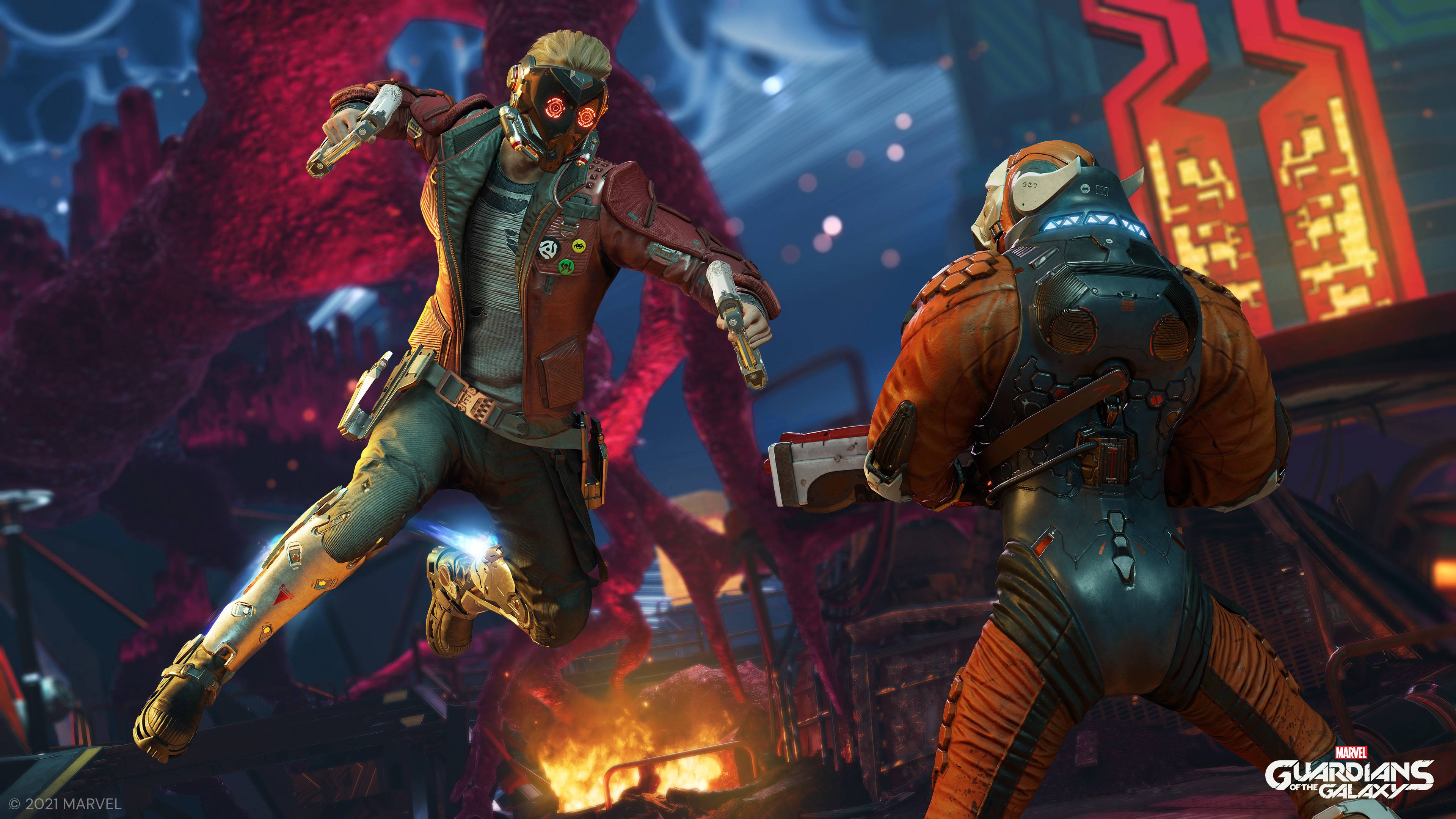Marvel’s Guardians of the Galaxy promises to look stunning on PC with Nvidia DLSS and ray tracing
Ray-traced reflections will be supported, plus DLSS to help the game run smoothly

Marvel’s Guardians of the Galaxy will launch complete with ray tracing and DLSS support, Nvidia announced at Gamescom 2021, along with a bunch of other reveals including the same support for Dying Light 2 Stay Human.
The PC version of Marvel’s Guardians of the Galaxy will have ray-traced reflections as well as DLSS tech to help frame rates stay smooth, particularly if you turn on that ray tracing capability. Only those who own an Nvidia RTX graphics card need apply, of course.
- AMD vs Nvidia: which should be your next graphics card?
- Where to buy Nvidia RTX 3080: find stock here
- We'll show you how to build a PC
Olivier Proulx, Senior Producer at developer Eidos-Montréal, commented: “Marvel’s Guardians of the Galaxy combines original storytelling and electrifying single-player gameplay with an edgy aesthetic. With the addition of ray tracing and Nvidia DLSS, PC players will enjoy this stunning universe’s visuals with even higher performance.”
Dying Light 2 Stay Human was also revealed as having both ray tracing and Nvidia DLSS when it launches in December. The zombie-blasting action RPG will get not just reflections with its implementation of ray tracing, but also global illumination and shadows.
Myst, which is out in a couple of days on August 26, is another title which is getting the benefit of ray-traced reflections and DLSS, with the latter capable of doubling the performance levels in the adventure. With just an RTX 2060 GPU, in DLSS ‘performance’ mode with ray tracing at 4K resolution, Myst runs at 62 frames per second (fps) compared to 27 fps without DLSS. That’s the difference between nicely smooth, and rather juddery.
Other games announced as getting DLSS support include Wild West battle royale GRIT, and Chivalry 2. Plus the Faraday Protocol has just launched with DLSS, Nvidia reminded us.
SYNCED: Off Planet is getting ray tracing (reflections and shadows) along with DLSS, and Bright Memory: Infinite, as well as Loopmancer, will get both of those too (with ray-traced reflections, shadows, and global illumination in both cases).
Get daily insight, inspiration and deals in your inbox
Sign up for breaking news, reviews, opinion, top tech deals, and more.
Rusty reflexes
Nvidia also announced that both Escape from Tarkov and Rust have had their implementation of Nvidia Reflex optimized to further reduce latency, with sizeable additional chunks taken off (latency being reduced from a 38% drop to 58% and 51% respectively in Tarkov and Rust).
For those thinking about buying a new GeForce RTX-powered PC or laptop in the near future, it was revealed that Battlefield 2042 will be bundled with some of these machines for a limited period of time, as an extra incentive to fork out for a new device.
Finally, you might recall that DLSS support came to Linux back in June, but only for Vulkan-powered games (being run via the Proton compatibility layer). At the time, Nvidia noted that DirectX would get support later in 2021, and that has now happened – or rather, it’s about to.
Support will be coming to a bunch of DX11 and DX12 games in September, according to Nvidia, and that includes Control, Cyberpunk 2077, Death Stranding, F1 2020, Mechwarrior 5: Mercenaries, and Necromunda: Hired Gun.
Analysis: Plenty on the boil at Nvidia
There’s an ever-increasing library of games which support either ray tracing and DLSS, or in quite a few cases both, as there’s an obvious synergy between getting more demanding ray-traced graphics to run at palatable frame rates.
And without a doubt, it’s great to see a number of fresh additions here, especially Marvel’s Guardians of the Galaxy, a single-player narrative-focused shooter which promises to deliver where Marvel’ Avengers stumbled. Ray-traced reflections certainly won’t hurt the game’s visuals, of course, but more to the point, DLSS could give what might otherwise be underpowered rigs a distinct leg up in achieving decent frame rates.
It’s also good to see DLSS under Linux making speedy progress, with DirectX games getting support (via Proton) much quicker than we expected. That ties in with the swift progress of Linux’s overall viability as a gaming platform of late, something that’s being driven forward considerably since the revelation of Valve’s Steam Deck, and ongoing development on that portable PC (which uses Proton to run Windows games).
Darren is a freelancer writing news and features for TechRadar (and occasionally T3) across a broad range of computing topics including CPUs, GPUs, various other hardware, VPNs, antivirus and more. He has written about tech for the best part of three decades, and writes books in his spare time (his debut novel - 'I Know What You Did Last Supper' - was published by Hachette UK in 2013).